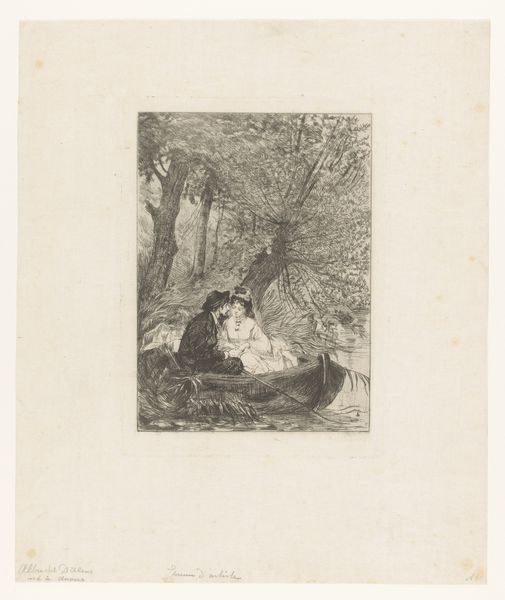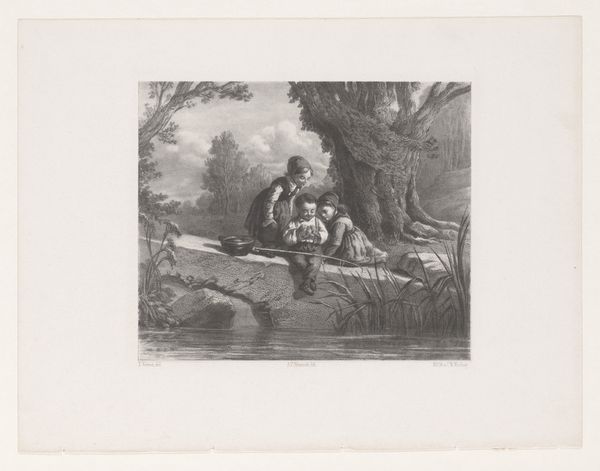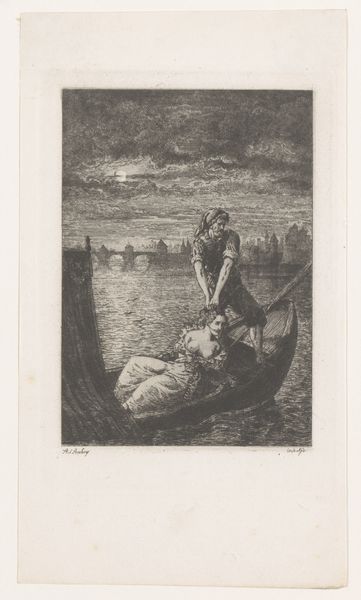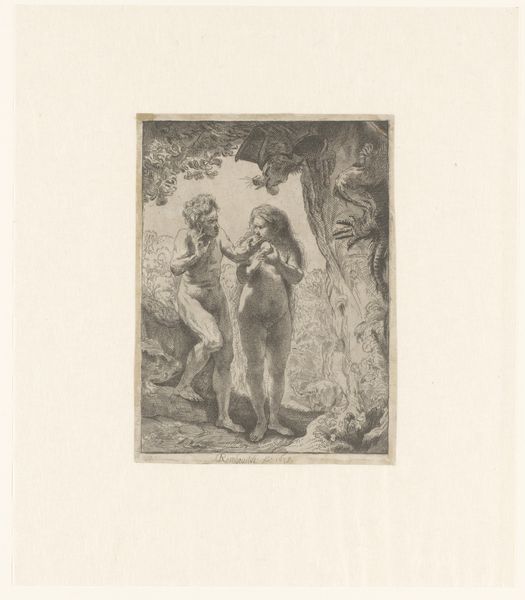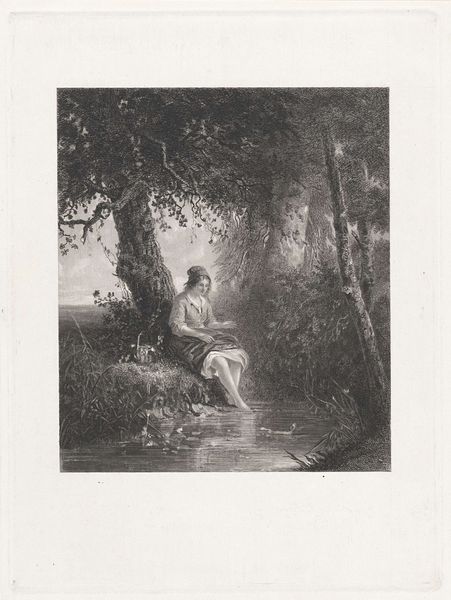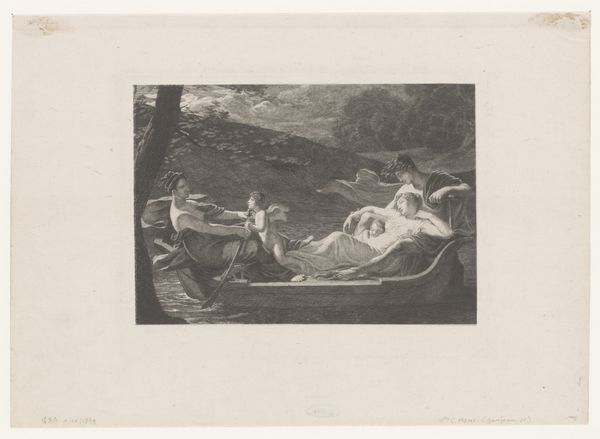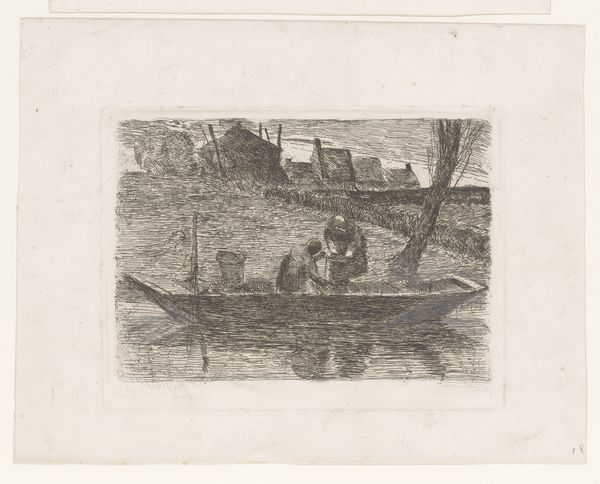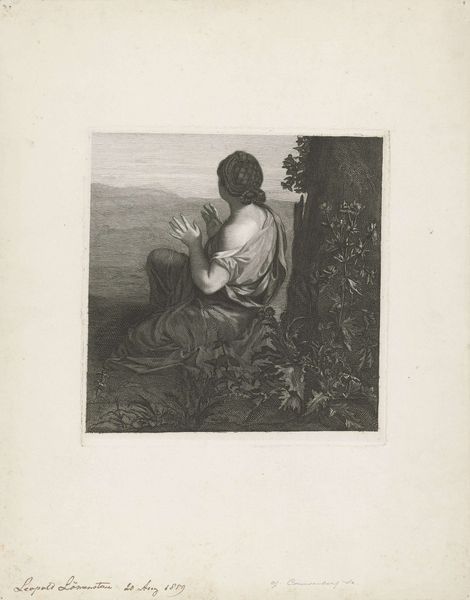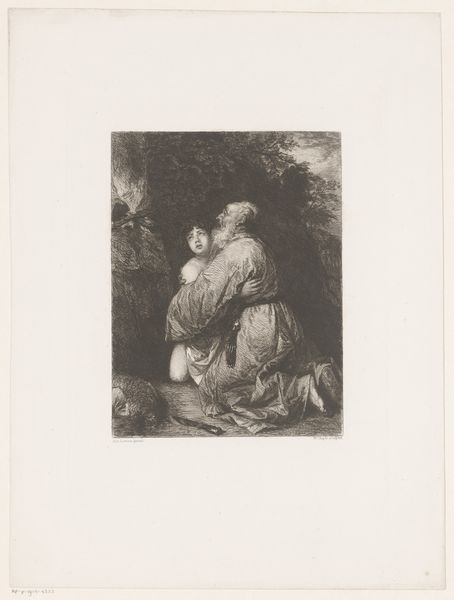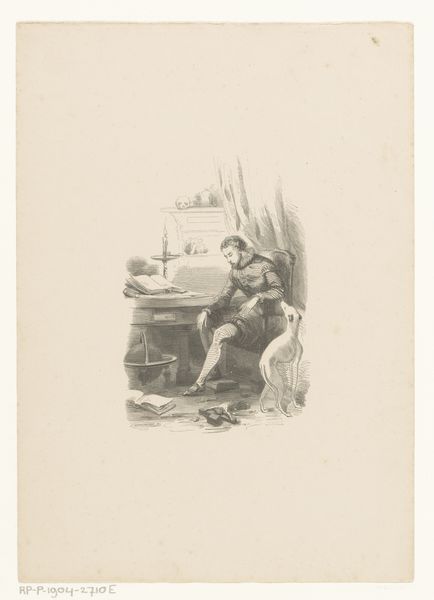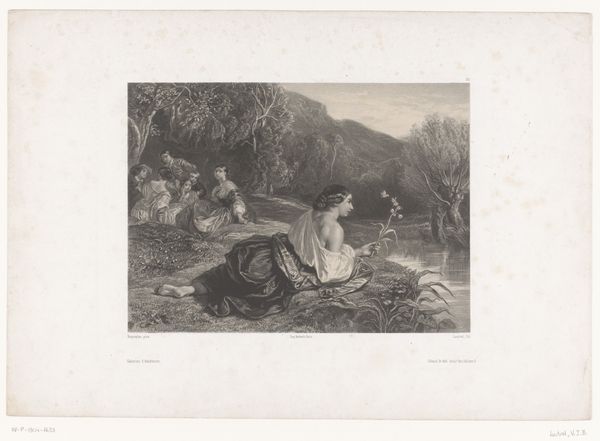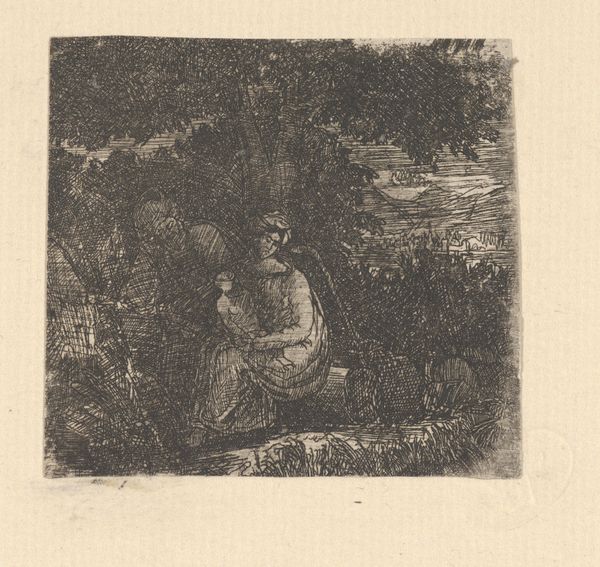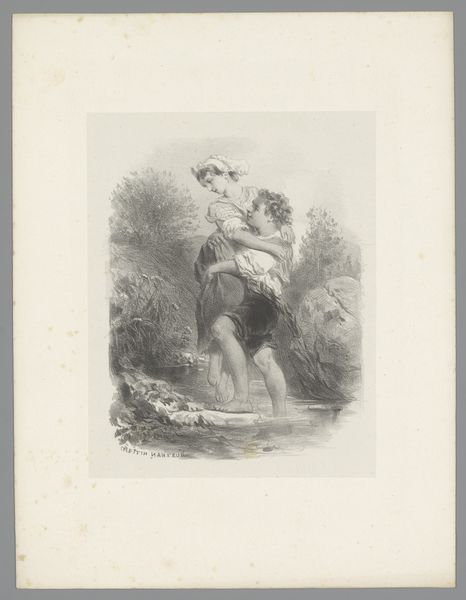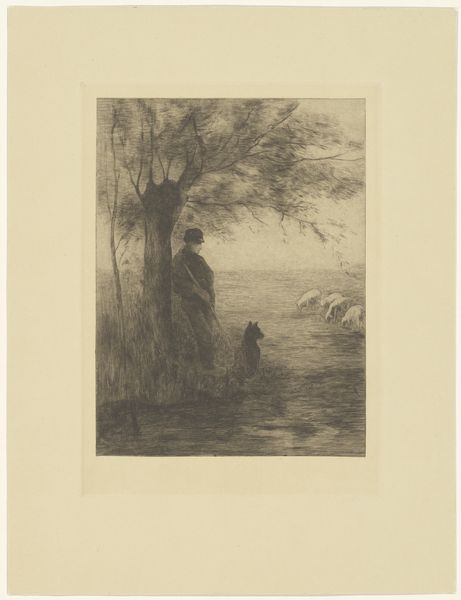
drawing, print, etching, paper
#
portrait
#
print photography
#
drawing
# print
#
etching
#
landscape
#
paper
#
genre-painting
Dimensions: height 346 mm, width 258 mm
Copyright: Rijks Museum: Open Domain
Curator: Frederik Hendrik Weissenbruch created this etching on paper in 1869, currently held here at the Rijksmuseum. It's entitled "Vrouw met baby wordt overgevaren," or, "Woman with baby being ferried across." Editor: Wow, what a scene! It’s got this serene yet melancholic vibe, doesn't it? The water looks still, but you can feel the weight of the ferry, somehow. And it feels intimate but slightly remote at the same time. Curator: The etching technique really lends itself to that quiet feeling. The tones, the texture… It places this intimate family moment within a wider historical understanding of genre painting and the social roles of women. The composition highlights themes of dependency and movement. Consider what it means to be crossing a body of water; the symbolism suggests rites of passage, displacement and connection all at once. Editor: Exactly! It’s that stillness before movement. I wonder, what’s their story? Where are they going? It makes me think about displacement in my own family… and the artist, Weissenbruch—I imagine him watching them from the bank, pen in hand, thinking "that’s it, that's what I want to capture". Curator: We can trace Weissenbruch's focus on landscape elements back to his connection with the Hague School movement, which celebrated the everyday life of the Dutch landscape and rural existence. He, and other artists were challenging previously conventionalized ways of representing the human form, and creating more socially engaged artwork. Editor: Socially engaged, yes, but also so damn personal! I imagine Weissenbruch sitting there on the river bank sketching and getting completely absorbed in his memories and feelings. That's what I appreciate most, the humanness that breathes out of what he did! Curator: Indeed. And I would add that thinking about art and these family histories requires we address broader economic conditions, in that access to landscape—and land—is intrinsically linked to structures of inequality… Editor: Totally. Thinking about our history gives context and substance to our humanity today and beyond. A lovely conversation.
Comments
No comments
Be the first to comment and join the conversation on the ultimate creative platform.
